ECONOMICS
TOPICS
The world beyond 2020 will usher in a post COVID-19 era, seeing new disruptive forces that changes the patterns of economic distribution. Foremost amongst these trends is the importance of the knowledge and digital economy over other traditional sectors. This has wide-ranging ramifications on skills-in-demand, how we consume, and the future of work itself. The potential for uneven distribution of growth is compounded by the fact that global economic recovery since the COVID-19 pandemic will leave many working people behind.
Focus Areas
- Inequality
- Jobs and Wages
- Healthcare
- Education
- Regional Integration

Semiconductor Nationalism and its implications for Malaysia.
READ FULL REPORT HERE Executive Summary Table 1: Summary of implications for Malaysia Key elements of semiconductor nationalism Implications for Malaysia Recognition of importance A

With No More Ceiling Prices, Will Costs Hit The Roof?
The government’s plan to remove ceiling prices and subsidies for chicken, eggs and bottled palm cooking oil will take effect on the 1st of July. It’s a move that has ignited fears around the rising cost of living- we discuss its impact and who will be feeling the brunt of this policy reversal. Then, we dive into what’s needed to to create an effective system that better identifies people in need of government assistance.

RCEP: one small step, not a giant leap, for trade and growth in Malaysia
REFSA researcher Jaideep Singh unpacks the agreement to show that RCEP is a small step forward that mostly consolidates regional rules rather than a giant leap for trade and growth. Read the full report to find out more.
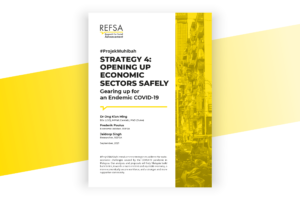
Projek Muhibah Strategy #4 : Opening up Economic Sectors Safely
We outline different frameworks to structure the reopening of the economy in a manner that is safe, responsible and based on science and data in order to boost consumer confidence.
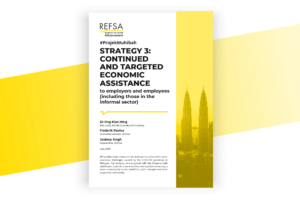
Projek Muhibah Strategy #3 : Continued and Targeted Economic Assistance to Employers and Employees
In #ProjekMuhibah Strategy 3, we propose a comprehensive strategy for governments to raise fiscal spending and provide immediate economic assistance to those hit-hardest by the pandemic.
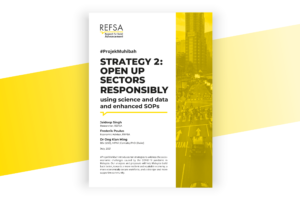
#ProjekMuhibah Strategy 2 : Open Up Sectors Responsibly
Malaysia should tailor dynamic SOPs for different sectors and spaces using science and data-driven approaches. Read our full #ProjekMuhibah strategy 2 here.
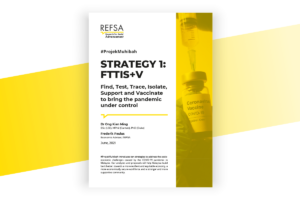
#ProjekMuhibah Strategy 1 : FTTIS+V
Instead of blanket lockdowns, REFSA proposes #ProjekMuhibah Policy 1, which comprises a targeted Find, Test, Trace, Isolate, Support and Vaccinate (FTTISV) framework.
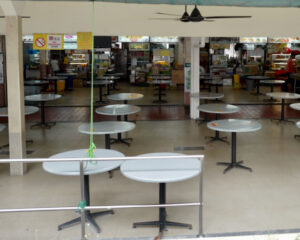
Introduction to the 10 Strategies to Save Jobs and Revive the Economy
How can the nation tackle the immediate challenges we face right here, right now? Here, we introduce 10 strategies on how to save jobs and revive the economy. Stay tuned as we release the policies in the coming weeks.

The impact of COVID-19 on the Youth in Malaysia – a survey report
Based on a survey carried out at the height of the COVID-19 crisis in May 2020, this report highlights the impact of COVID-19 and the ensuing lockdowns on Malaysian youth. It is found that the youth are more vulnerable, with different age groups of youth experiencing different difficulties. Read the full report to find out more.
